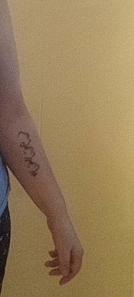I had an argument today with a friend of friend about Sarah Millican’s dress.
Some background for you, in case you’ve missed the story.
Sarah Millican is a comedian who was nominated for a Bafta, had a wonderful evening and was eviscerated on Twitter for the temerity of having breasts. She was devastated but responded magnificently and very good for her. Millican was betrayed by her dress which she says looked lovely in the shop but which really didn’t look great in the photographs. This happens, the camera is a bastard at times. As she pointed out she’s a comedian not a model and has never learned to walk or pose in front of cameras.
What was egregious about the response to Millican’s dress was not that it was commented on, but that it was commented on in public. There is a whole sub-specialty of fashion journalism dedicated to being bitchy about women on the red carpet. And then there is twitter. Oh lord.
I commented in a closed thread on Facebook about other choices Millican could have made and was roundly bollocked for doing so. But I am English, and was brought up not to be rude to people to their face. Other people think we are a culture of hypocrites because we will comment discretely behind your back. The internet makes this hard, of course. Hence twitter storms.
However, I really felt for Millican. I have more or less the same figure and I never know where to put my tits in a photograph. I end up being so self-conscious when I know there’s a camera around that I always have the shifty look of someone who’s just wet themselves. The only photographs of myself that I like are ones where I didn’t know I was being photographed, or where I’ve given up responding to the camera at all. So in this thread of doom I was reflecting on my own experience: I too face the difficulty Millican describes of finding clothes that I like and fit.
Two months ago I had my photograph taken for a national paper, one of the ones with a circulation in millions not tens of thousands, and it’s not an experience I enjoyed. I was more resigned than nervous; nervous is for situations where you have some agency. I settled for looking groomed rather than attractive and thought about what to wear for weeks beforehand. I had my hair and nails done, I wore a highish necked dress and a waterfall cardigan that cut vertically across my boobs. The photographer hated the fact I wore black. If I had known, I’d have worn a different colour. I like to be helpful and he seemed to know his job. the piece has not yet been published, but I will probably ask someone else to read the comments thread for me. The ironic thing is that the story isn’t even about me. Oh well.
I am so sad that Millican’s bubble was burst after the Baftas. She is a talented person, and deserves so much better.









You must be logged in to post a comment.